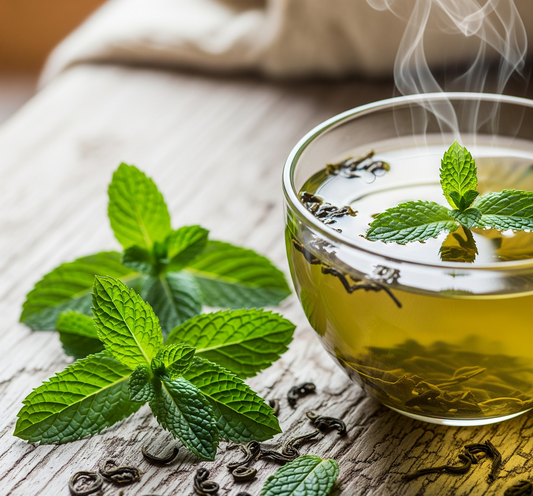Introduction:
Since it’s accidental invention in 1904, and its popularization in the mainstream market in the 1950s, tea bags packed with a variety of tea leaves have been sold in a variety of designs, constructed with a variety of materials.

Read about the types of tea bags and how to choose the right one for you!
Because tea bags are generally packed with low grades of tea and constructed with mass-produced, processed materials that make the storage and transport of tea convenient, they are more widely available at cheaper prices. Tea drinkers consider teabags to be a more convenient brewing option in comparison to loose-leaf tea, which requires tools like tea pots or infusers.
However, there are growing concerns among tea drinkers about the volume of microplastics, heavy metals and other trace chemicals in their tea bags. Here is what you need to know:
How are tea bags made?
Tea is either prepared by pouring near boiling or boiling water over either loose-leaf teas or by infusing tea into hot water by using strainers, infusers, or most commonly tea bags.
Most tea bags are made of bleached filter paper treated with plastic substances, like polypropylene, or nylon and thermoplastic blends.
When these tea bags interact with hot water, they release billions of microplastics and nanoplastics into your cup of tea. A study by researchers at McGill University found that one cup of tea could contain more than 11 billion microplastics and 3 billion nanoplastics. Regular tea drinkers that opt for plastic tea bags could be ingesting billions of microplastics and nonoplastics, including trace amounts of heavy metals and harmful compounds.

Not only are the potential harms of microplastics and nanoplastics, small enough to penetrate human cells and remain embedded in our stomach lining, a cause for alarm, tea bags that use plastics also contribute to environmental pollution.
As these tea bags do not decompose fully, the plastics from the tea bags end up in landfills and oceans, disrupting ecosystems and harming animal life. Removing microplastics from the oceans is difficult, leading to a major waste management issue worldwide.
Harms of Using Traditional Tea Bags in Skin Care
Along with using tea bags for a quick and easy brew, many people also use tea bags to treat under-eye bags and dark circles, as a hot compress to relieve toothaches, and as a deodorizer in socks and shoes.
However, as many cheap and widely available tea bags are not only bleached and treated with plastic substances, but they have also been found to contain trace amounts of heavy metals like lead and aluminum.
In close contact with sensitive areas like eyes and bare skin for prolonged periods, these compounds, along with additions like glue, can act as irritants, leading to potentially harmful results in the long term.
Beyond Microplastics: How to Avoid Drinking Plastics

Loose Leaf Teas
An option for tea drinkers who want to avoid drinking microplastics and other harmful compounds is loose leaf tea.
Loose leaf teas are usually higher grades of tea than those packed in tea bags. They offer fresher and denser flavors and aromas, healthier amounts of antioxidants, without the addition of plastics.

Compostable, Bio-degradable Tea Bags:
Many tea companies now offer organic, plastic-free and biodegradable tea bag options in a variety of designs and organic materials. These tea bags are made of untreated filter paper or organic fibers derived from cornstarch that can be fully composted.
Many of us, for whom plastic is not our cup of tea, have a variety of sustainable options for brewing tea. From reusable, fabric-based tea bags, reusable tea bags, to plastic free, biodegradable tea bags, conscious consumers of tea can opt for a range of sustainable tea bag options.
To serve our tea lovers with the convenience of high-quality tea bags without all the plastics and chemicals, Nepal Tea Collective is launching our very own line of tea bags very soon. Stay tuned with us to find out all about our foray into the world of eco-friendly, healthy whole leaf bagged teas!

Sources:
1. https://pubs.acs.org/doi/abs/10.1021/acs.est.9b02540
2. https://www.beyondplastics.org/fact-sheets/microplastics-in-tea
3. https://www.ncbi.nlm.nih.gov/pmc/articles/PMC3821942/




